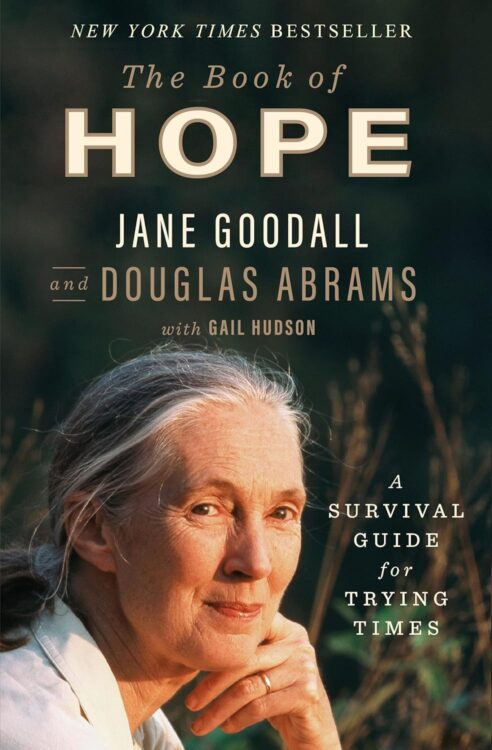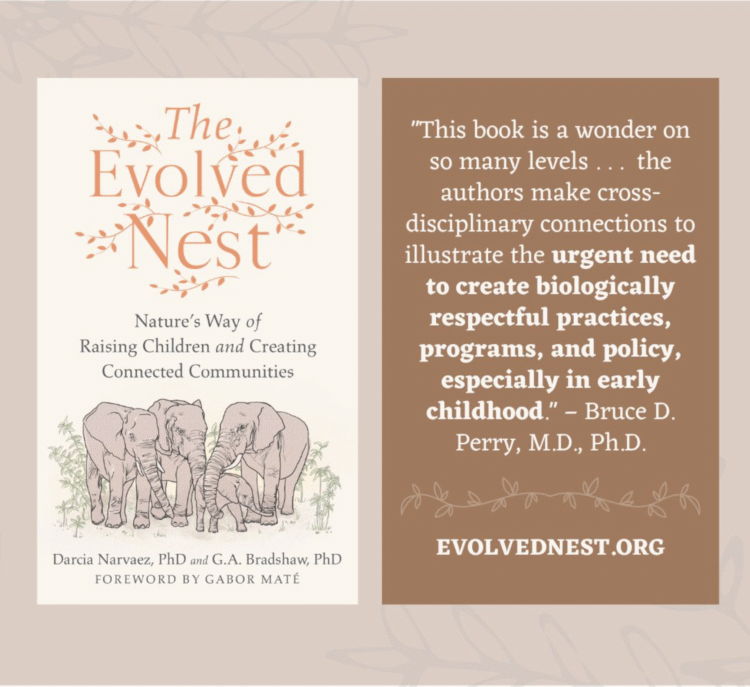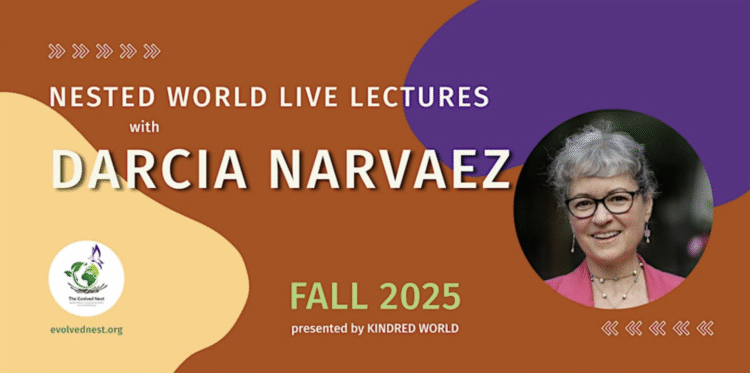Dr. Jane Goodall, Trailblazing Primatologist and Champion of Interconnected Life, Dies at 91
Goodall's Work Influenced and Reflected Our Evolved Nest and Kinship Worldview
 Los Angeles, California — Dr. Jane Goodall, the groundbreaking British primatologist whose intimate observations of chimpanzees in Tanzania revolutionized our understanding of animal intelligence, empathy, and our shared evolutionary heritage, died on October 1, 2025, while on a speaking tour in California. She was 91. The Jane Goodall Institute, which she founded, confirmed that she passed peacefully of natural causes, surrounded by family and close colleagues.
Los Angeles, California — Dr. Jane Goodall, the groundbreaking British primatologist whose intimate observations of chimpanzees in Tanzania revolutionized our understanding of animal intelligence, empathy, and our shared evolutionary heritage, died on October 1, 2025, while on a speaking tour in California. She was 91. The Jane Goodall Institute, which she founded, confirmed that she passed peacefully of natural causes, surrounded by family and close colleagues.
Born Valerie Jane Morris-Goodall on April 3, 1934, in London, England, Goodall’s lifelong passion for animals was evident from childhood. At age 1, she famously dragged a stuffed toy chimpanzee everywhere she went, and by 10, she had declared her dream: to live among Africa’s wild creatures. With no formal university degree at the time—unusual for a field researcher—she arrived in Kenya in 1957 at 23, working as a secretary before catching the eye of anthropologist Louis Leakey. He arranged for her to observe chimpanzees at Gombe Stream Chimpanzee Reserve (now Gombe Stream National Park) in Tanzania, a posting that would span more than 60 years and redefine primatology.
In 1960, Goodall ventured into the forest alone, notebook in hand, enduring rain, isolation, and skepticism from the scientific establishment. Her revolutionary approach—naming her subjects (like the matriarch Flo and her son Flint) rather than numbering them, and immersing herself without preconceptions—yielded discoveries that upended human-centered science. She documented chimpanzees’ use of tools, such as stripping twigs to “fish” for termites from mounds, challenging the notion that tool-making was uniquely human. She revealed their complex social structures, emotional depths—grief, joy, deception—and familial bonds, including mothers cradling infants in leafy nests and extended kin groups cooperating for survival. These insights not only elevated chimpanzees from mere “brutes” to sentient kin, but also forced a reckoning with humanity’s place in the natural world.

Goodall’s work extended far beyond Gombe. In 1977, she founded the Jane Goodall Institute, a global nonprofit dedicated to wildlife conservation, community empowerment, and environmental education. Her youth program, Roots & Shoots—launched in 1991—empowered over a million young people in 100 countries to tackle local environmental issues, embodying her mantra: “Only if we understand, will we care. Only if we care, will we help. Only if we help, shall we be saved.” A United Nations Messenger of Peace since 2002, she crisscrossed the globe, lecturing on climate change, habitat loss, and the ethical treatment of animals, amassing honors including the Kyoto Prize, the Tyler Prize for Environmental Achievement, and a damehood (DBE) from Queen Elizabeth II in 2004.
In her later decades, Goodall’s legacy intertwined profoundly with emerging paradigms that echoed her lifelong advocacy for empathy and interconnection. Her meticulous records of chimpanzee parenting—prolonged breastfeeding, responsive soothing, and communal nesting—provided foundational comparative evidence for Evolved Nest science developed by Dr. Darcia Narvaez and colleagues. Humanity’s Evolved Nest, cooperatively provided by kin and non-kin nurturers, aligns with Goodall’s observations of how chimp mothers and kin collaboratively build safe, nurturing environments. Narvaez notes, “These communal approaches to raising the young foster health and wellbeing. Goodall showed us that like us, chimpanzees grow into intelligence and cooperation when basic needs are met through the species’ evolved nest.” Both Goodall and Narvaez highlight the evolutionary continuities in child raising that underscore why modern disruptions to these “nests” contribute to societal ills like disconnection from nature and social disorder.

Similarly, Goodall’s worldview—rooted in the profound kinship she felt with her chimpanzee “family”—anticipated and amplified the Kinship Worldview, an Indigenous-inspired philosophy championed in works like Restoring the Kinship Worldview by Wahinkpe Topa (Four Arrows) and Narvaez. This perspective embraces all life as sacred, sentient, and interdependent, rejecting anthropocentrism in favor of reciprocal relationships with the more-than-human world. Goodall often spoke of this “indivisibility of life,” crediting her Gombe epiphanies for dissolving barriers between human and animal. Moreover, she actively supported dialogues bridging science and Indigenous wisdom to heal our fractured bond with Earth.
Goodall’s influence extended to visionary communities like Kindred World, a nonprofit network founded in 1996 that reimagines human futures through wisdom-based, wellness-informed narratives of wholeness and kinship. Goodall’s ethos of compassionate activism inspired Kindred’s gatherings of “trance-breakers, new cycle makers, and village builders”, who draw on her model to cultivate a “new story” for the human family—one where empathy for other species drives systemic change. Lisa Reagan, Kindred World’s founder and Kindred Magazine’s editor noted, “Jane Goodall was a kindred soul whose science wove the threads of our shared, new story.”
Dr. Goodall’s light has dimmed, but her vision endures: a world where kinship—human, animal, earthly—is not just observed, but lived. As she once wrote, “The least I can do is speak out for those who cannot speak for themselves.” In death, as in life, she has.
This post was originated by AI and edited by humans.


